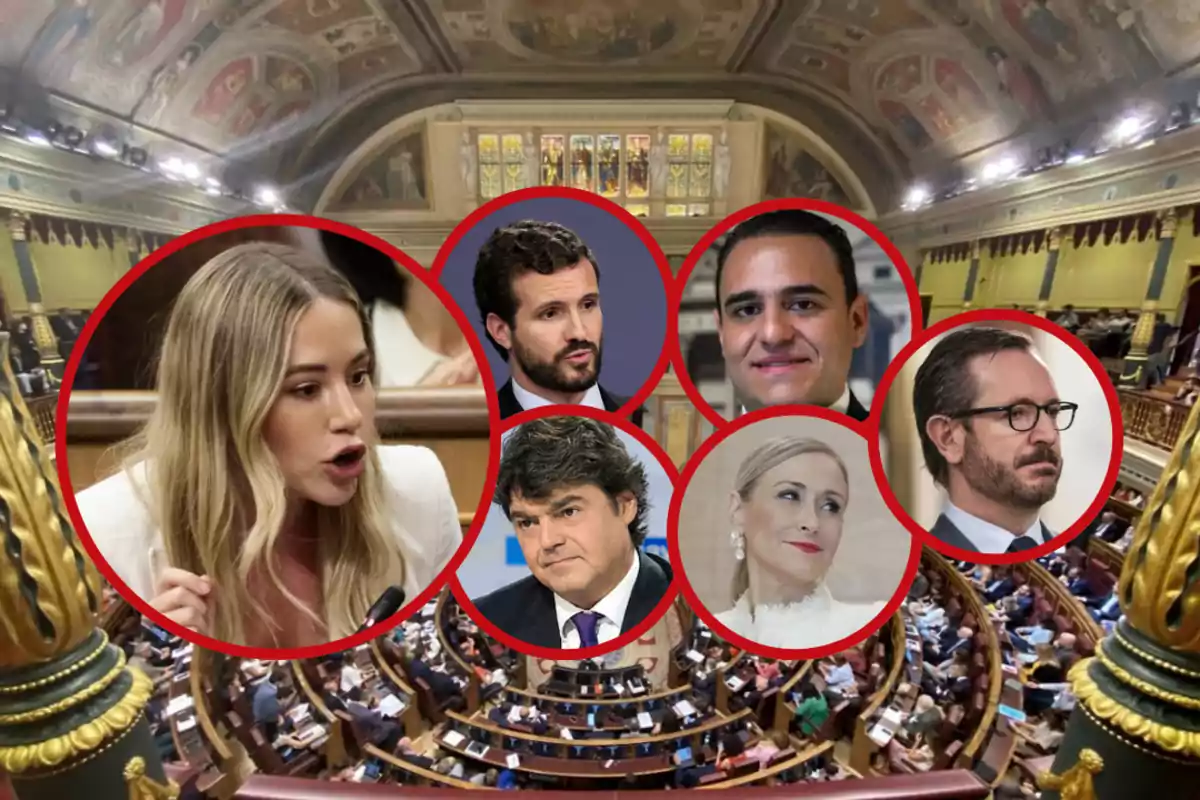
The other fake résumés of PP politicians: from Noelia Núñez to Casado and Maroto
The scandal of the fake university degrees held by several PP politicians is affecting Feijóo's presidency
The recent resignation of Noelia Núñez as a deputy of Partido Popular (PP) for Madrid has once again brought a thorny issue to the table. This is a matter that many parties have been dragging for years: irregularities in the academic backgrounds of some of their members.
What began as a specific complaint on social media by Minister Óscar Puente has triggered a new wave of criticism. It has also led to media scrutiny and demands for accountability.
However, Núñez is not an isolated case. In fact, she is part of an increasingly long list of political leaders from all benches. They have seen their academic backgrounds called into question. From forged degrees to master's degrees obtained under irregular circumstances, scandals have affected profiles at all levels. The consequences have been varied: from immediate resignations to judicial acquittals that have not managed to dispel public doubts.
Today, we will turn to the blue bench and the most striking scandals of PP in recent years regarding their "educational irregularities."
Noelia Núñez: from young promise to fleeting blackout
Until now, the Deputy Secretary of Mobilization and Digital Challenge of PP appeared in the media spotlight after a questionable fact was revealed. Her profile in Congreso attributed to Núñez a double degree in Law and Legal Sciences of Public Administration. It also mentioned studies in English Philology. Shortly after, the deputy herself admitted that she had not completed any of these degrees, attributing the inconsistencies to an "administrative error."
Although she defended her innocence, "I've never wanted to deceive anyone," and promised to resume her studies, the pressure from PSOE, the media, and social media hastened her departure. The case reopened the debate about the reliability of the curricular data of public representatives. It also highlighted the need to establish effective verification mechanisms in Congreso.
Cristina Cifuentes: the case that changed everything
The former president of Comunidad de Madrid was at the center of one of the most high-profile scandals in 2018. It was revealed that she had obtained a master's degree in Regional Law from Universidad Rey Juan Carlos through forged records and manipulated signatures. Although she was acquitted criminally because it could not be proven that she directly induced the forgery, two people close to her were convicted.
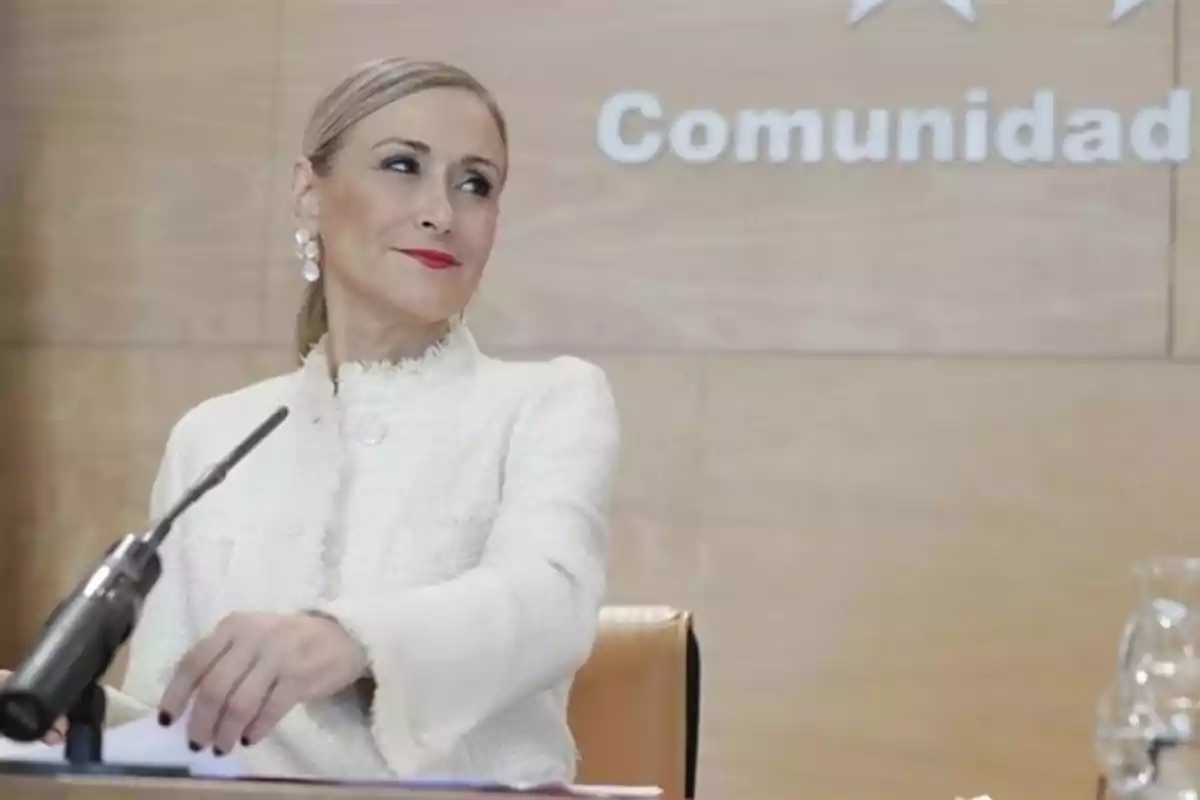
Cifuentes's fall was dramatic. The resignation occurred after the appearance of an old video that allegedly showed her shoplifting in a supermarket. However, the master's case was the main cause of her loss of political credibility.
José Miguel González Robles: completely fake degree
The former deputy for León and general secretary of PP in the province resigned in 2019. It became known that he had presented a completely fake Law degree. He admitted the deception, claiming that he had been the victim of a scam in the "black market of fake degrees." That did not prevent his swift exit from the party.
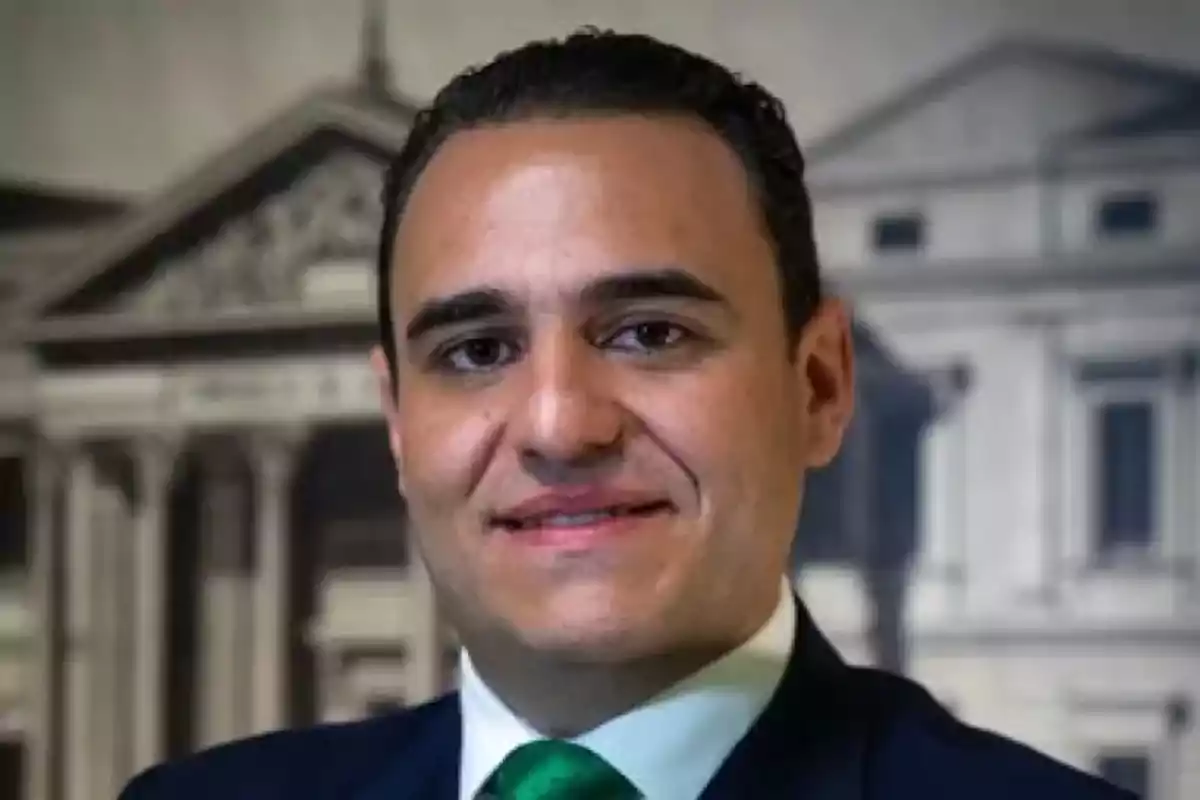
This case was one of the few in which the forgery was absolute and direct. This led to a quick and unambiguous resignation, setting a rare precedent of immediate political responsibility.
Pablo Casado: a questioned master's, but no criminal consequences
Pablo Casado, former president of PP, was singled out for having obtained a master's degree at Universidad ReyJuan Carlos. He validated 18 out of 22 subjects and did not attend class, even though the program was in-person. Although the investigating judge found "indications of preferential treatment," the Supreme Court did not find sufficient evidence to open a criminal case.
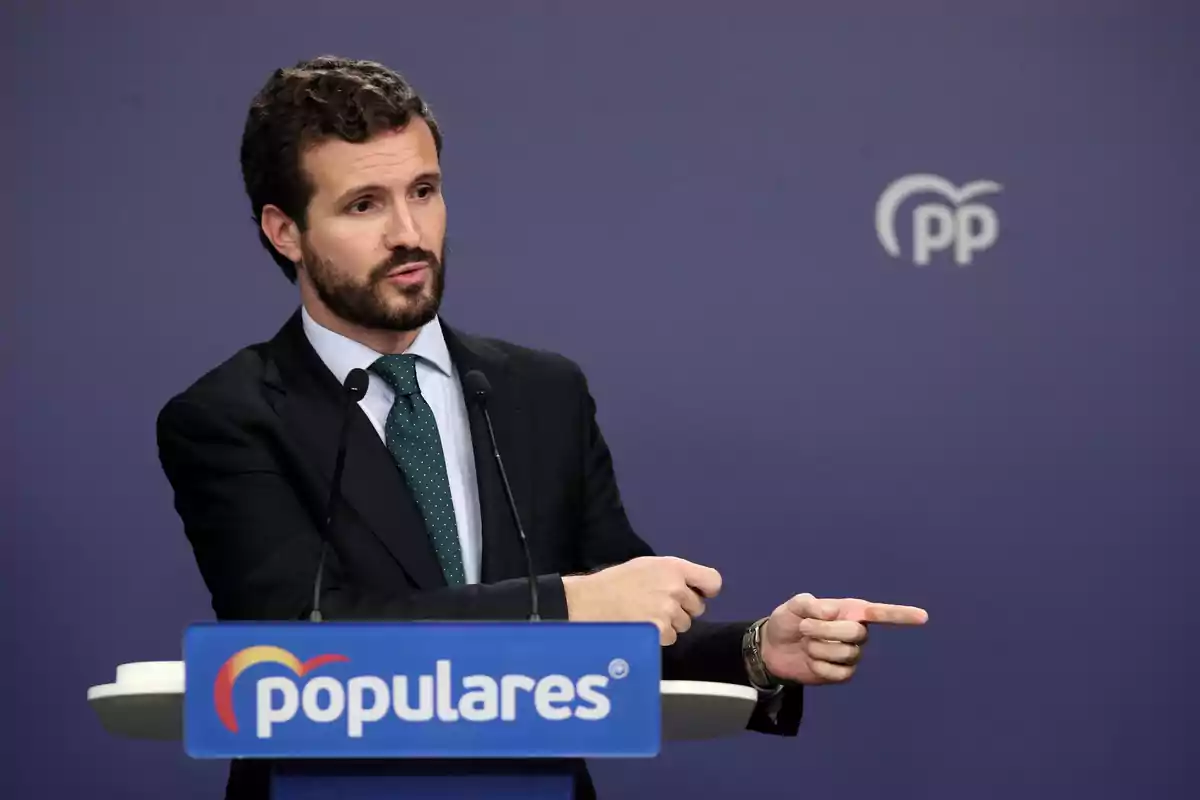
To this were added suspicions about how he completed his law degree in record time and an accusation of plagiarism in an article published in 2012. Despite everything, Casado did not resign for these reasons and his political career continued until his departure from the leadership of PP for unrelated reasons.
Javier Maroto: master's or leadership course?
In 2018, the Deputy Secretary of Social Policy of PP had to clarify an important detail. The "master's" that appeared in his biography was actually a "Leadership Program for Public Management" taught by IESE Business School. He assured that it was a naming error on the party's website and that he had never officially presented himself as holding a master's degree.

This case exposes how language and academic labels can be manipulated or confusing for the public. In addition, some parties choose to inflate the academic profiles of their leaders with nuances that, while not illegally false, are indeed misleading.
Jorge Moragas: the "missing" master's
The former chief of staff of Mariano Rajoy was singled out for having removed from his résumé a master's degree from Centro de Estudios Internacionales in Barcelona. Although the degree still appeared in other official sources, such as the Transparency Portal or his profile on Wikipedia. Its "disappearance" in certain spaces was interpreted as a maneuver to avoid controversy.

This case highlights the lack of uniformity in public data. It also shows how easily a politician's professional image can be manipulated, depending on the platform where it is presented.
A common strategy? The normalization of deception
Beyond the differences between cases, there are patterns that repeat: initial denial, minimization of the irregularity, partial admission, and, in many cases, counterattacks directed at politicians from other parties. This is the well-known "and you too," a tactic that dilutes the seriousness of the facts by suggesting that "everyone does it."

This tactic has been used by Núñez, who replied to criticism by accusing Pedro Sánchez of copying his thesis. Maroto also used it, recalling that the president called a postgraduate course a "master's." But the damage is already done: the public perceives that ethics in politics is relative and that academic standards are flexible if the goal is to climb the ranks.
A matter of democratic trust
The impact of these cases goes beyond personal discredit. Every time a politician lies or exaggerates their academic background, the credibility of institutions is eroded. The lack of systematic verification mechanisms, both in the parties and in Congreso itself, fuels suspicion. It also reinforces the public's skepticism toward their representatives.
Various voices, even within PP itself, have called for stricter regulation to prevent these episodes. Proposals such as requiring official documentation in the declaration of public résumés or sanctioning those who falsify merits have gained strength, but they still have not materialized into concrete measures.
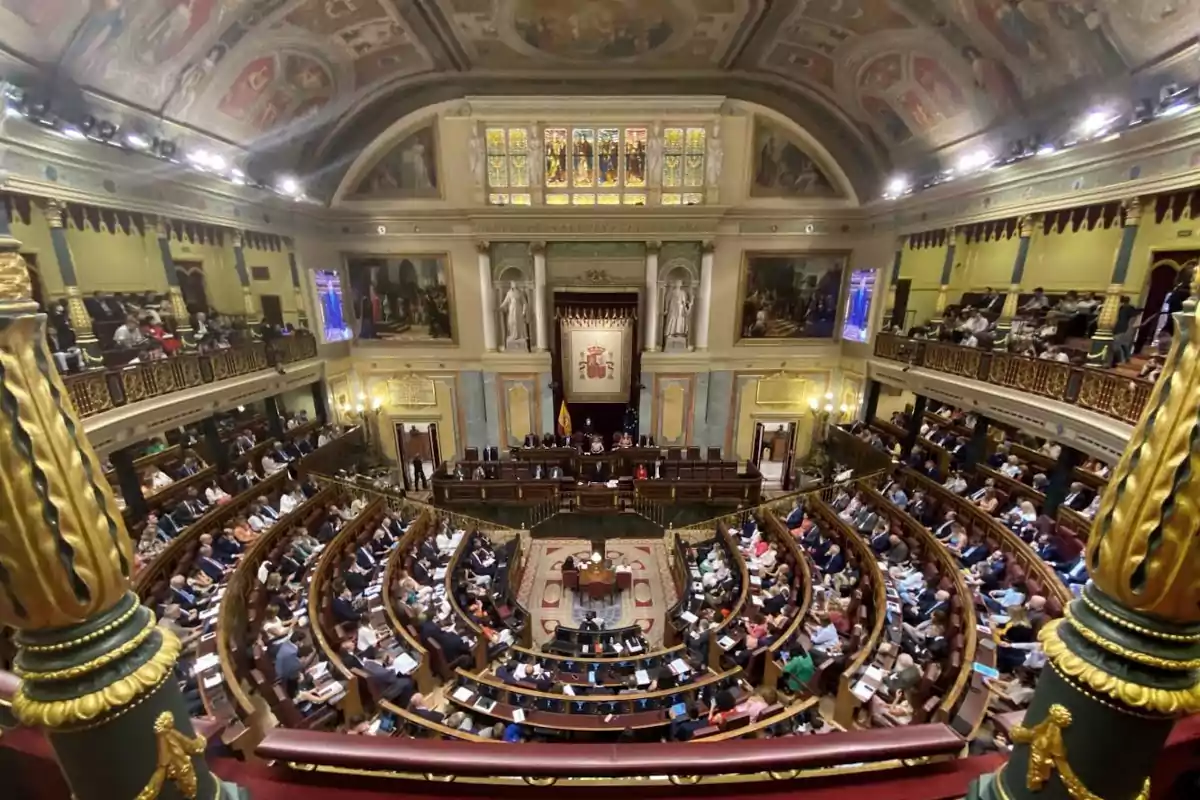
The resignation of Noelia Núñez could be the spark that forces Partido Popular to take the verification of academic profiles seriously. By extension, it could also affect the rest of the parliamentary spectrum. Politics can't afford more scandals that call into question meritocracy, transparency, and public trust.
More posts: